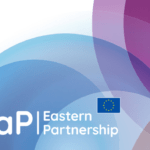Following the recent consultations at regional level with African, Caribbean and Pacific (ACP) countries, Chief Negotiators Commissioner Mimica and Togolese Minister Robert Dussey met in Brussels recently to discuss the outline for the future ACP-EU agreement.
Next steps
While talks on the specific regional partnerships progress, the EU and ACP negotiating teams will continue their work on the text of the agreement that covers all 79 countries (also referred to as “the common foundation“). Upcoming negotiation sessions will notably focus on the institutional set-up. The aim is to make maximum progress before the next chief negotiators’ meeting, due to take place in the second half of July.
Background
The Cotonou Agreement currently governing EU-ACP relations is due to expire in 2020. Negotiations on a new ACP-EU Partnership were launched in New York on 28 September 2018 in the margins of the United Nations General Assembly.
The initial rounds of talks mainly focused on the common foundation at EU-ACP level. This common foundation sets out the values and principles that bring the EU and ACP countries together and indicates the strategic priority areas that both sides intend to work on together.
In addition, the future agreement is planned to include specific, action-oriented regional pillars focusing on each region’s needs. The first round of consultations on the regional pillars has now concluded.
The future ACP-EU Partnership will serve to further cement the close political ties between the EU and ACP countries on the world stage. Together, they represent more than half of UN member countries and over 1.5 billion people.
More information
Access the complete news







Leave a Reply